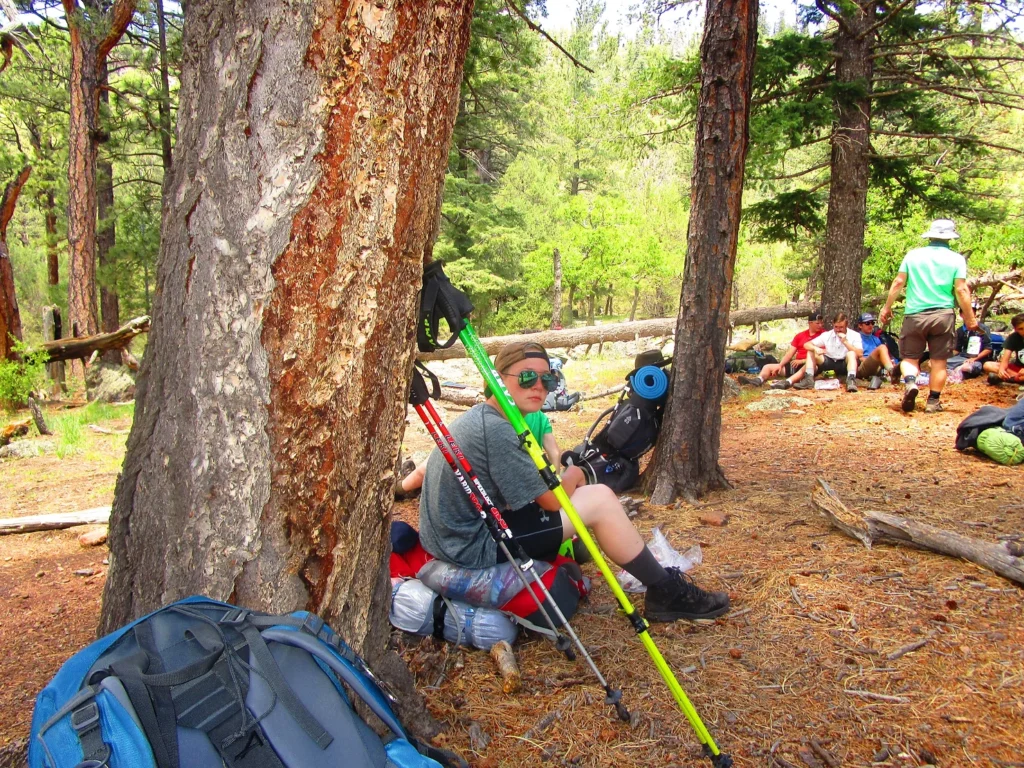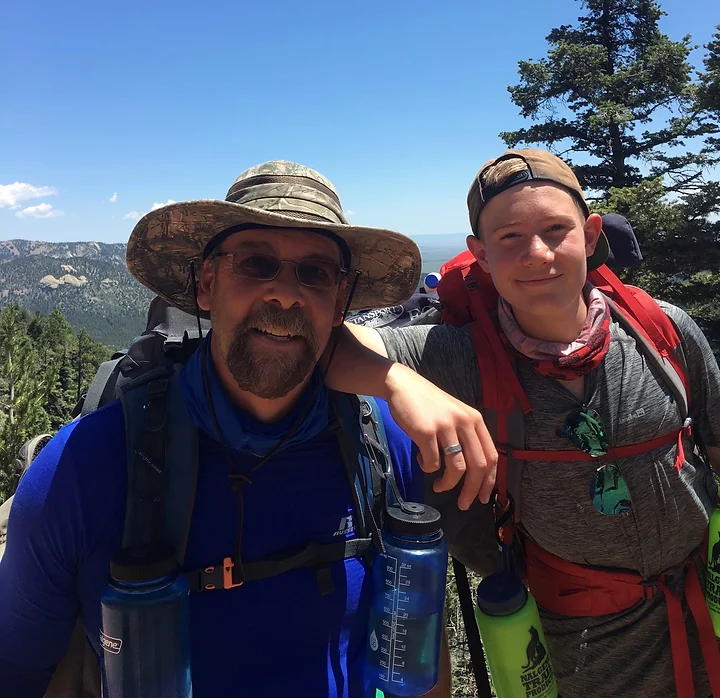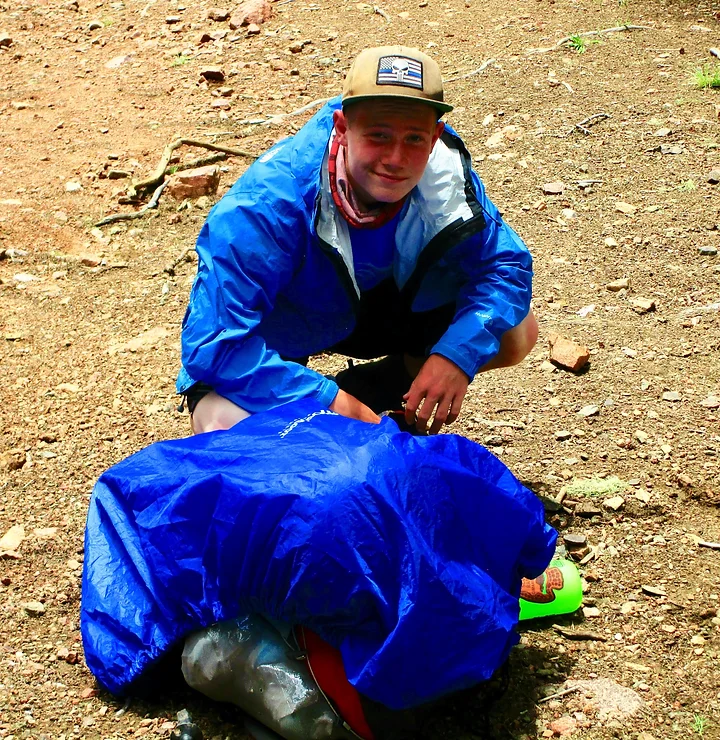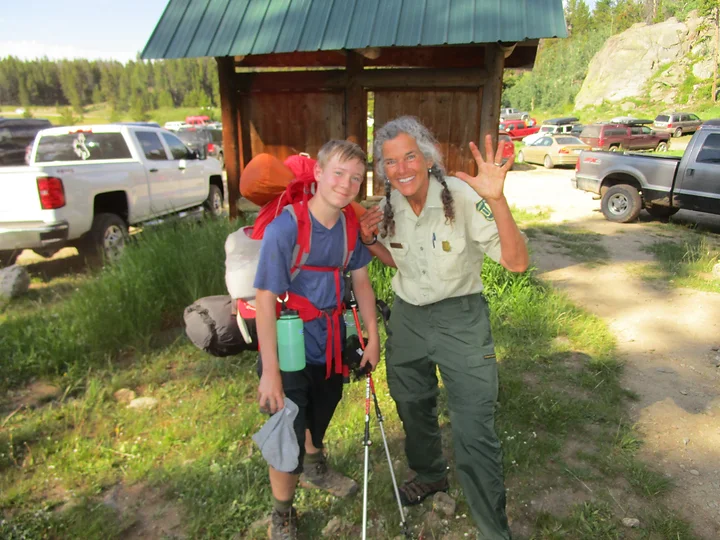
Initially, Dolph planned a 10-day Philmont Hike with his Boy Scout troop in 2018, but fires forced the troop to cancel that trip. They rescheduled the hiking expedition for the Wind River Mountain Range in Wyoming in 2019.
Garrett H. Dolph decided to challenge himself when he set his sights on a Wind River backpacking trip to fulfill the Congressional Award expedition requirement. “I wanted to prove to myself that I could set a goal and work to accomplish that goal,” said Dolph, who is a junior at Central High School in Cheyenne.
“We researched locations and decided on the Wind Rivers of Wyoming as a good challenge to test our abilities for backpacking, hiking, camping, and how to overcome obstacles,” Dolph said.
The troop worked on practice hikes, meal planning, how to properly pack gear, weather, driving routes, how far to hike each day, fishing, and general survival.
This trip challenged everyone in many different ways, Dolph said. For some, it was endurance, and for others, the challenge of fishing.
“I felt like this trip was a great idea to help me prepare for my 10-day trip to Philmont the next summer,” Dolph said. “It made me realize that I needed perhaps more practice hikes with my full pack on, and how to pace myself when hiking.”
Completing this trip totaled at least 198.5 hours, Dolph said. “I’m sure it actually totaled more than that when you consider the time it took me to shop for gear and packing.”
Dolph reviewed the equipment needed for his trip. “Knowing what is important to pack and was non-essential was key,” he explained.

He took the following on this trip:
- A new tent that only weighs 5 pounds
- A stuffed sleeping bag
- Water-wicking shirts, pants, shorts, and undergarments
- Sun protection and bug screens for head/neck
- Walking sticks to help balance when hiking on rocky trails
- Good footwear was extremely important to keep your feet dry and healthy is critical when hiking for five days.
- We used a lot of mole-skin for blisters, and the first aid kit was a must.
- Water filtration system: We played around with several different ways to filter the water to ensure that no one ended up with an illness. Some of the water filtration pumps are amazing, while others took too much time. Water purifying tablets ended up being the fastest way to ensure our water was drinkable.
- Due to fire bans, we used portable stoves for heating our water to make our dinners.
- Rope and bear bags: We had to ensure that all the smellables were in the bear bags and strung each night properly to make sure we didn’t invite unwanted predators into camp each night.



If other youth are interested in doing a backpacking trek, Dolph highly recommended realistic practice hikes with a weighted pack.
“I recommend that they take it seriously so that no one gets hurt or suffers from things like altitude sickness, heatstroke, or dehydration,” he added. “Take advice from those that have done similar activities and stay safe so that you can enjoy all the aspects of a backpacking trip.”
Dolph thought the trip was so much fun, and he learned a lot from the adults on the trip.
“I felt like I grew as an individual, and it gave me the ability to know that I could survive in the wilderness,” he said.
The hours completed on this expedition helped Dolph meet his Congressional Gold Medal requirements.
Volunteerism runs in the family. Both of his sisters are Gold Congressional Award medalists, as well.
“I’ve grown up in a home where volunteering and helping out those in need is just what we do,” he explained.
“The Congressional Award Program allows me to set goals and work to achieve those,” he added. “It also helps keep me motivated to find new ways to help out my community.”
He was also quick to credit his advisor for helping him. “My advisor, Dianne Kirkbride, is the best!”
